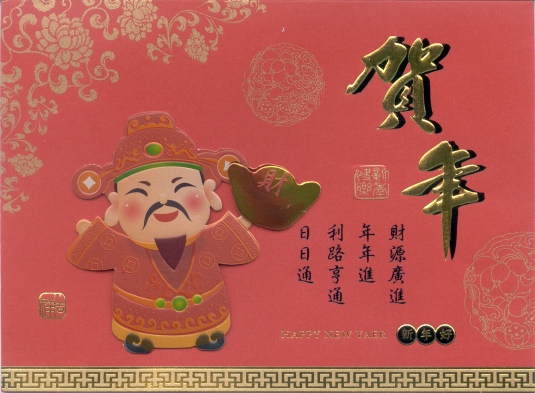 As the Year of the Ram is transitioning into the Year of the Monkey, I thought it would be good for us to look at some of the Chinese idioms involving these animals.
As the Year of the Ram is transitioning into the Year of the Monkey, I thought it would be good for us to look at some of the Chinese idioms involving these animals.
羊 (yáng) means sheep, ram or goat. Specifically, 綿羊 (miányáng) is the Chinese word for sheep, and 山羊 (shānyáng) are goats. Did you notice the two horns at the top of the Chinese character 羊(yáng)?
A Chinese calligraphy or painting brush made of goat’s hair usually has the word 羊毫 (yángháo) marked on it. They are softer than 狼毫(lángháo), which is made of weasel’s hair.
羊毛(yángmáo) is fleece. The idiom 羊毛出在羊身上(yángmáochūzàiyángshēnshang) describes a situation in which a benefit actually came from one’s own contribution or expenditure. If a sheep receives a fleece blanket as a gift, it will behoove it to remember that the wool came from its own back. In other words, there is no free lunch.
A narrow meandering path is often referred to as 羊腸小道(yángchángxiǎodào). 羊腸(yángcháng) are a goat’s intestines.
掛羊頭賣狗肉(guàyángtóumàigǒuròu) means to display a goat’s head but sell dog meat instead, i.e. to bait and switch.
順手牽羊 (shùnshǒuqiānyáng) means to walk off with someone else’s belonging that is lying around.
亡羊補牢(wángyángbǔláo) means to repair the fence after a sheep is killed (such as by a cayote). This idiom could be used both ways – to say that it’s too late for the lost sheep, or to say that it’s not too late to try to save the other sheep.
Then there is the scapegoat, or 替罪羊 (tìzuìyáng) or 代罪羔羊 (dàizuìgāoyáng). 羔羊 (gāoyáng) is a lamb.
The Chinese character for monkeys is rather interesting in that on the right side is 侯(hóu), which stands for a high official. On the left side is the radical for animals – 猴(hóu). And an idiom comes naturally to mind. 沐猴而冠 (mùhóuérguàn) describes a worthless person who makes himself look impressive, like a monkey that was bathed and dressed in imposing attire. The man in the above image is shown in ancient Chinese government costume, indicating status and power. Now picture a monkey in this outfit.
Compared to 老虎(lǎohǔ tigers), 猴子 (hóuzi monkeys) are weak and powerless. However, when there are no tigers in the mountains, then a monkey could claim to be the king. Therefore the following saying makes fun of people whose abilities do not match the high position they hold.
山上無老虎,猴子稱大王.
Shān shàng wú lǎohǔ, hóuzi chēng dàwáng.
頭 (tóu) is the head, and 腦 (nǎo) are the brains. 猴頭猴腦 (hóu tóu hóu nǎo) is an expression used to describe a youngster who is hyperactive, flighty and careless.
A futile attempt to save a situation is often likened to a monky that tries to scoop the moon out of the water but drowns in the process. 救(jiù) means to rescue, to save or to help.
這就像猴子救月.
Zhè jiù xiàng hóuzi jiù yuè.
This is tantamount to a monkey trying to rescue the moon.
殺雞儆猴 (shājījǐnghóu) or 殺雞給猴看 (shājīgěihóukàn) means to ‘kill a chicken in front of a monkey’, i.e to make an example out of someone. Punishing someone often serves the purpose of frightening others who have a similar plot in mind.
I came across an interesting flower that has an eerie resemblance to a monkey’s face. You can click on this link to see what a 猴蘭 (hóulán monkey orchid) looks like.
The greeting card above shows the following couplet:
財源廣進年年進;
Cáiyuán guǎng jìn niánnián jìn
Financial resources pour in abundantly year after year;
利路亨通日日通.
Lì lù hēngtōng rì rì tōng
Road to profits and riches goes smoothly day after day.
The Chinese believe that the Year of the Monkey brings vitality. Take the “k” out of “monkey”, and you’ll get “money”. May you have all the energy and $ you need to accomplish everything you want in this coming Chinese lunar year.
恭禧发财!
Gōngxǐ fācái!
Have a happy and prosperous New Year!
Recent Comments